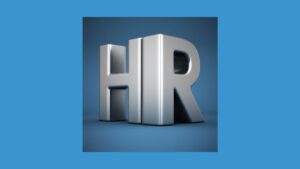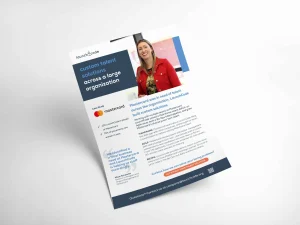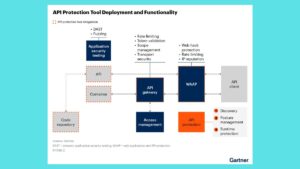Personalizing Employee Learning Paths with HR Technology


In today’s fast-paced and ever-evolving business landscape, continuous learning and development are crucial for both employees and organizations to stay competitive. One-size-fits-all training programs are becoming obsolete, giving way to personalized learning paths that cater to individual employee needs, skills, and career goals. HR technology is at the forefront of this transformation, offering innovative tools and solutions to tailor learning experiences and maximize employee potential. This blog explores how HR technology is personalizing employee learning paths and the benefits it brings to the modern workplace.
The Shift Towards Personalized Learning
Traditional training programs often fall short of addressing the diverse needs of a modern workforce. Employees have different learning styles, career aspirations, and skill gaps, making it essential to adopt a more personalized approach. Personalized learning paths consider these individual differences, allowing employees to progress at their own pace and focus on areas that are most relevant to their roles and future goals.
Key HR Technologies Enabling Personalized Learning
- Learning Management Systems (LMS)
Learning Management Systems (LMS) are the backbone of personalized learning. Modern LMS platforms use advanced algorithms to recommend courses and training modules based on an employee’s role, performance data, and career objectives. These systems track progress and provide real-time feedback, enabling employees to take control of their learning journey. - Artificial Intelligence (AI) and Machine Learning (ML)
AI and ML play a significant role in personalizing learning experiences. These technologies analyze vast amounts of data to identify learning patterns and predict future needs. AI-powered platforms can suggest personalized learning content, identify skill gaps, and create tailored development plans for each employee. - Employee Development Platforms
Employee development platforms integrate with existing HR systems to offer a holistic view of an employee’s learning journey. These platforms provide tools for setting learning goals, tracking progress, and accessing a wide range of training resources. They also facilitate mentorship programs and peer learning opportunities, enhancing the overall learning experience. - Microlearning Tools
Microlearning tools break down complex topics into bite-sized, easily digestible modules. This approach aligns with the personalized learning model by allowing employees to engage with content at their convenience and pace. Microlearning platforms can deliver tailored content based on an employee’s specific needs and preferences.
Benefits of Personalizing Employee Learning Paths
- Enhanced Engagement and Motivation
Personalized learning paths increase employee engagement by offering relevant and meaningful content. When employees see the direct impact of their learning on their career progression and job performance, they are more motivated to participate in training programs. - Improved Skill Development
By focusing on individual skill gaps and learning preferences, personalized learning paths ensure that employees acquire the skills they need to excel in their roles. This targeted approach leads to more effective skill development and better overall performance. - Greater Retention and Career Growth
Personalized learning demonstrates an organization’s commitment to employee development, which can boost retention rates. Employees are more likely to stay with a company that invests in their growth and offers clear career advancement opportunities. - Increased Productivity and Efficiency
Employees who receive tailored training are better equipped to handle their responsibilities and contribute to organizational goals. Personalized learning paths help employees become more competent and confident, leading to increased productivity and efficiency. - Data-Driven Insights
HR technology provides valuable data and insights into the effectiveness of learning programs. Organizations can use this data to continuously refine and improve their training strategies, ensuring that they meet the evolving needs of their workforce.
Implementing Personalized Learning Paths
To successfully implement personalized learning paths, organizations should consider the following steps:
- Assess Learning Needs and Goals
Conduct a thorough assessment of employees’ current skills, performance levels, and career aspirations. Use this information to define learning objectives and create tailored development plans. - Leverage Advanced HR Technology
Invest in modern HR technology platforms that offer personalized learning capabilities. Ensure that these platforms integrate seamlessly with existing HR systems and provide user-friendly interfaces. - Promote a Culture of Continuous Learning
Encourage employees to take ownership of their learning journeys by promoting a culture of continuous learning. Provide ongoing support and resources to help employees stay engaged and motivated. - Monitor and Adjust Learning Paths
Regularly monitor the progress of personalized learning paths and make adjustments as needed. Use data-driven insights to refine learning strategies and address any emerging skill gaps.
Conclusion
Personalizing employee learning paths with HR technology is not just a trend but a strategic imperative for modern organizations. By leveraging advanced HR tools and technologies, companies can create tailored learning experiences that drive engagement, skill development, and career growth. As the workplace continues to evolve, personalized learning will play a critical role in ensuring that employees and organizations thrive in a dynamic and competitive environment.






